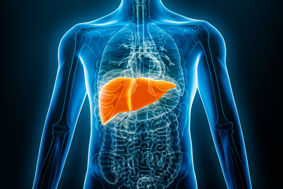
A world-class Allergy, Asthma and Clinical Immunology Center in Birmingham has successfully had their center status renewed.

As AMR threatens to become the leading cause of death by 2050, vaccines could lead way to tackle drug-resistant infections and reduce reliance on antibiotics

Birmingham researchers hosted a unique event that brought together liver disease patients, researchers, charity partners, and an artist in residence.

The network includes the Midlands-Wales Advanced Therapy Treatment Centre, jointly delivered by University of Birmingham and University Hospitals Birmingham.

University of Birmingham and NHS England researchers have created a diagnostic code for presymptomatic type 1 diabetes to enhance healthcare treatment.

Professor Gary Middleton, Professor of Oncology, will be at the forefront of pioneering cancer research as ECMC Network Lead.

97% of patients who were deemed low risk and took part were assessed as not having allergy

University of Birmingham will lead UK-wide training to address critical skills demand in life sciences

The opportunity to eradicate a major and incurable bone marrow cancer has been made possible with a new programme funded by Cancer Research UK.

A Birmingham study reveals a novel cellular phenomenon could be responsible for the onset of primary biliary cholangitis (PBC).

First study tracking how NK cells respond in tumours found that stimulating the IL-15 pathway prevented the rapid loss of function and improved tumour control

Dr Shivan Sivakumar, a nationally recognised oncologist in cancers of the pancreas, liver and biliary tract, joins the College of Medical and Dental Sciences.